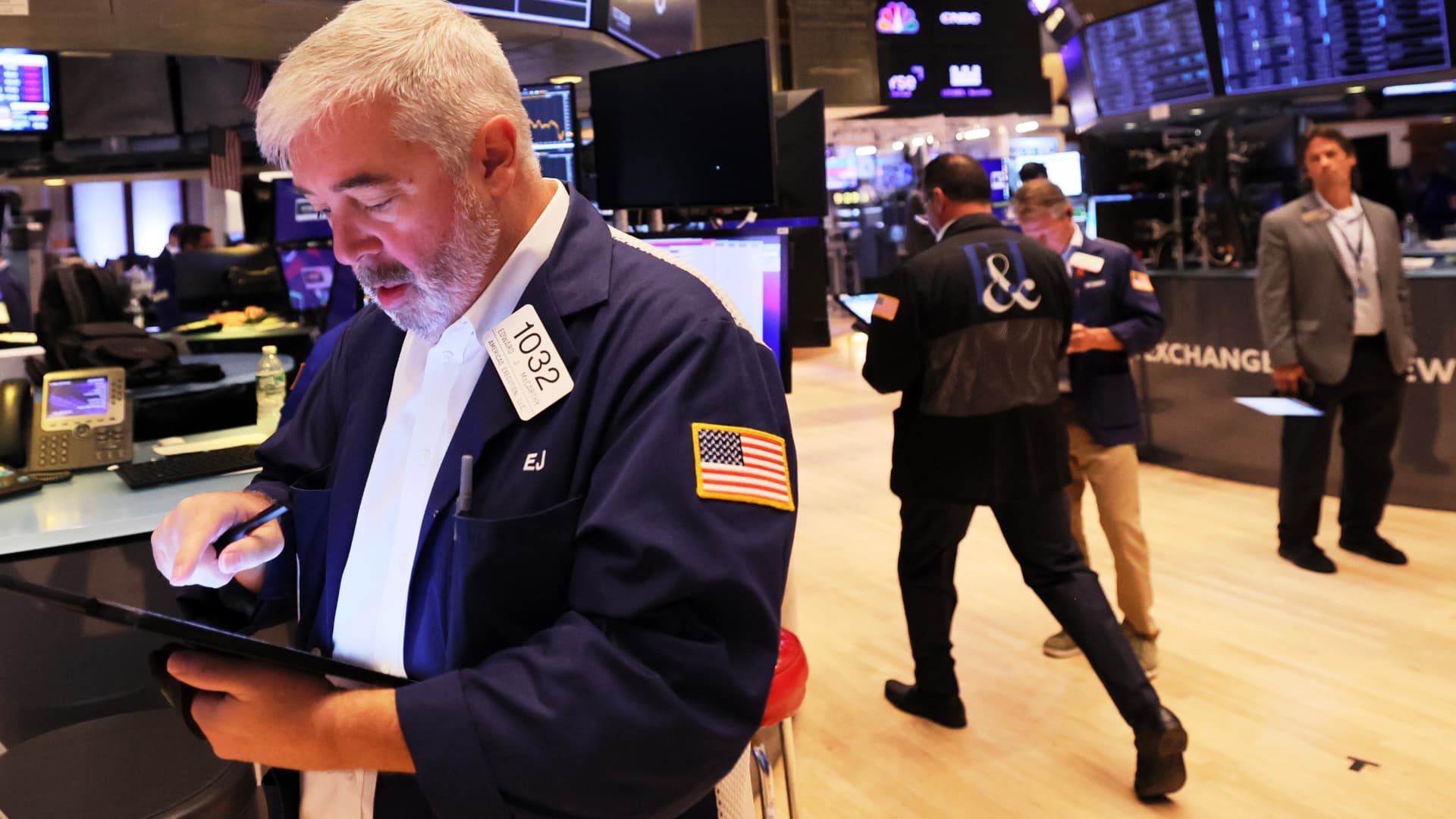Traders work on the floor of the New York Stock Exchange on August 16, 2023 in New York City.
Michael M. Santiago | Getty Images
This report is from today’s CNBC Daily Open, our new, international markets newsletter. CNBC Daily Open brings investors up to speed on everything they need to know, no matter where they are. Like what you see? You can subscribe here.
What you need to know today
‘Complete siege’ of Gaza Strip
Israel continued bombarding the Gaza Strip with airstrikes Monday — and planned to cut off electricity, water and food supplies — as part of its response to Saturday’s attack by Palestinian militant group Hamas. Deaths on both sides have exceeded 1,500 so far. Meanwhile, Iran’s permanent mission to the United Nations denied the country’s involvement in Hamas’ attack on Israel.
Barren garden
Shares of Country Garden plunged more than 7% after the troubled Chinese real estate developer failed to make a debt repayment of 470 million Hong Kong dollars ($60 million) Tuesday. Worse, Country Garden said it might not be able to make all of its offshore repayments, including those issued in U.S. dollars. Contracted sales in September dropped 80.7% from a year ago.
Booming digital economy
Singapore’s digital economy contributed 106 billion Singapore dollars ($77.5 billion) to the economy last year, comprising more than 17% of gross domestic product. By contrast, in 2017, the amount was SG$58 billion, which made up 13% of GDP. “Despite the recent tech sector lay-offs, the demand for tech jobs is likely to remain resilient,” said the country’s Infocomm Media Development Authority.
[PRO] ‘Bright spot’
Japan’s market is a “bright spot” globally now, said Goldman Sachs. One sector of the market has rallied around 30% so far, thanks to two developments within the country. And Goldman thinks these two stocks, which are on the bank’s conviction list, can rise close to 20%.
The bottom line
Major indexes rose despite the geopolitical upheaval in the Middle East.
Of course, some might attribute that increase to the usual suspects benefiting from armed conflicts. Oil and gas giants popped on rising crude futures. Defense stocks were also bolstered, especially after Bank of America said the U.S. government could increase defense investments.
But Anna Rathbun, chief investment officer for CBIZ Investment Advisory Services, thinks those movements in specific sectors are mostly “a knee-jerk reaction” because investors aren’t sure how the Israel-Hamas war will play out.
“So there’s dust going up, and now the dust is coming back down,” Rathbun said. “I think it will take a few days to really understand where the impact actually is.”
However, in terms of broader moves, analysts think markets have, over the weekend, already digested the implications of the conflict.
The S&P 500 advanced 0.63%, the Dow Jones Industrial Average increased 0.59% and the Nasdaq Composite climbed 0.39%.
“As long as … diplomatic efforts continue to focus on keeping the conflict contained, the market looks at it and says, we’ve seen this before,” said Quincy Krosby, chief global strategist at LPL Financial.
Echoing that, Meera Pandit, global market strategist at JPMorgan Asset Management, said on CNBC, “The impact in the longer run from geopolitical events tends to be somewhat contained.”
In another vote of confidence, even the Russell 2000 index of small-cap companies rose 0.6% — performing better than the Dow and Nasdaq. As I’ve noted before, the Russell 2000 reflects macroeconomic conditions more accurately and rapidly than bigger indexes. So its gains yesterday might be a sign the market’s “preparing to turn,” as Krosby puts it.
It can seem jarring that markets are recovering just as a fresh, deadly conflict is raging. But it corroborates what we’ve seen this year: Russian aggression in Ukraine had only a muted effect, if any, on the U.S. economy and markets.

